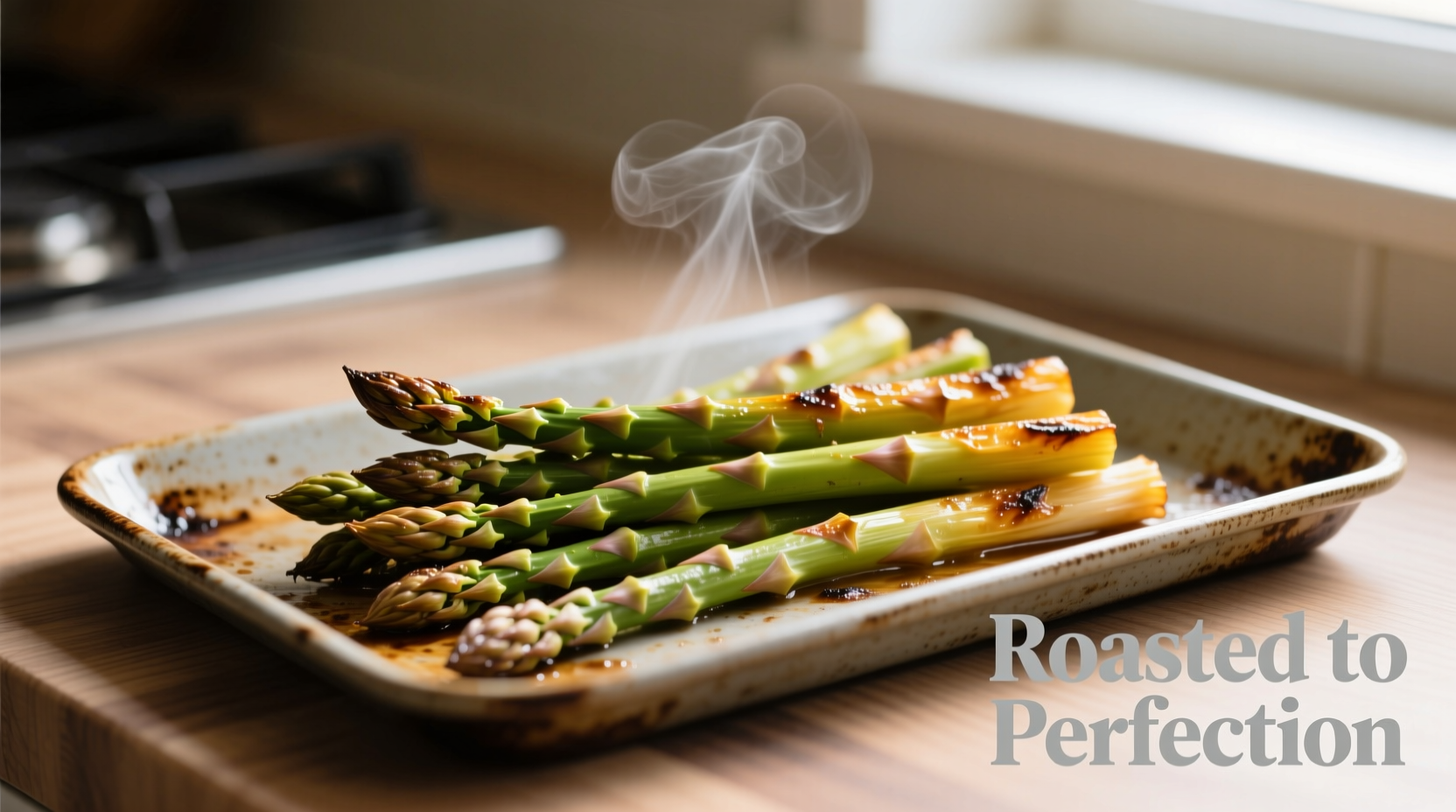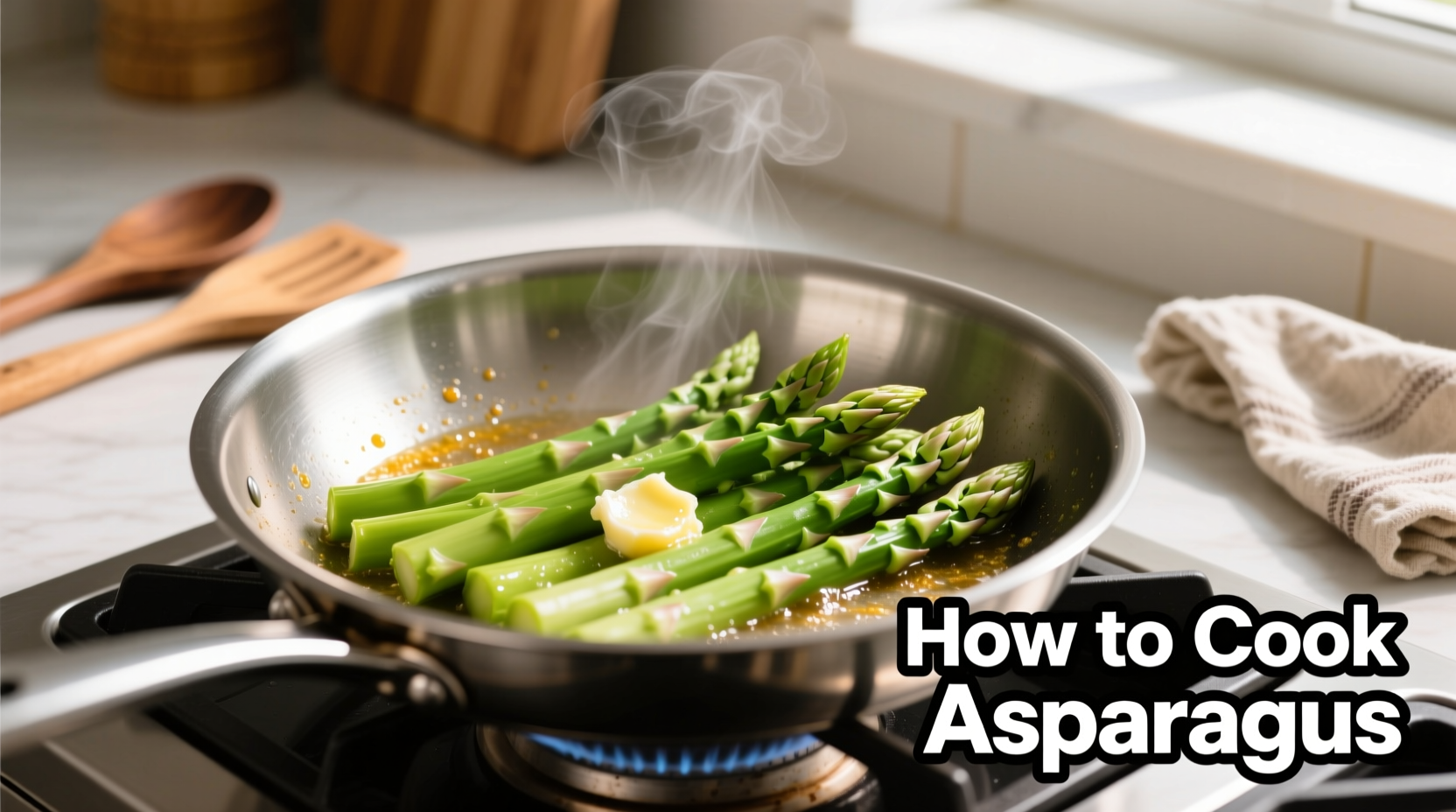Asparagus transforms from fibrous stalks to elegant, tender-crisp delights with proper cooking technique. This comprehensive guide reveals five professional methods that guarantee perfect results every time, whether you're working with thick or thin spears. Forget soggy, overcooked asparagus—we'll show you exactly how to achieve restaurant-quality results at home with minimal effort.
Selecting the Freshest Asparagus
Quality starts at selection. Look for firm, straight spears with tightly closed tips and vibrant green color (or deep purple for certain varieties). The USDA recommends checking the cut ends—they should appear moist, not dried out. Thicker spears (pencil-width or larger) work best for roasting and grilling, while thinner spears excel with steaming and sautéing. According to agricultural extension studies, asparagus loses quality rapidly after harvest, so purchase within 2-3 days of the bunch date for optimal freshness.
| Cooking Method | Time | Temperature | Best For | Texture Result |
|---|---|---|---|---|
| Roasting | 12-15 min | 400°F (200°C) | Thick spears | Tender-crisp with caramelized edges |
| Grilling | 8-10 min | Medium-high heat | All sizes | Charred exterior, tender interior |
| Steaming | 4-6 min | Boiling water | Thin spears | Delicate, bright green |
| Sautéing | 5-7 min | Medium-high heat | Medium spears | Evenly cooked, slightly crisp |
| Blanching | 3 min + ice bath | Boiling water | Salads/cold dishes | Firm, vibrant color |
Proper Preparation Techniques
Before cooking, proper preparation ensures even cooking and eliminates waste. Hold each spear at both ends and bend—it naturally snaps at the woody point. Alternatively, use a vegetable peeler on the lower third of thicker spears. The FDA recommends washing asparagus under cool running water and drying thoroughly before cooking to prevent steaming instead of searing.

Mastering the 5 Cooking Methods
1. Perfect Roasted Asparagus (Most Reliable Method)
Preheat oven to 400°F (200°C). Toss trimmed asparagus with 1-2 tablespoons olive oil, salt, and freshly ground pepper. Spread in single layer on baking sheet. Roast 12-15 minutes until tender-crisp, flipping halfway. For enhanced flavor, add lemon zest during last 5 minutes. This method works particularly well for how to cook thick asparagus stalks without becoming mushy.
2. Restaurant-Style Grilled Asparagus
Preheat grill to medium-high (about 400°F). Toss asparagus with oil and seasonings. Place perpendicular to grates to prevent falling through. Grill 8-10 minutes, turning occasionally, until tender with char marks. For grilled asparagus temperature precision, use a grill thermometer to maintain consistent heat.
3. Quick Steamed Asparagus
Bring 1 inch of water to boil in saucepan with steamer basket. Add asparagus, cover, and steam 4-6 minutes until bright green and tender-crisp. Immediately transfer to serving dish. This method preserves maximum nutrients and delivers the perfect texture for how long to cook asparagus when you need speed.
4. Fast Sautéed Asparagus
Heat 1 tablespoon oil in skillet over medium-high. Add asparagus and cook 5-7 minutes, stirring occasionally, until tender-crisp. Add 2 tablespoons water, cover, and steam 1-2 minutes if needed. This technique works best for how do you cook asparagus stalks that need quick weeknight preparation.
5. Blanching for Salads and Cold Dishes
Boil salted water, add asparagus, and cook 3 minutes. Immediately plunge into ice water to stop cooking. This preserves vibrant color for dishes requiring fresh asparagus cooking without full cooking.
Avoid These Common Mistakes
Many home cooks overcook asparagus until limp. Remember: asparagus continues cooking after removal from heat. The ideal texture is tender but still slightly crisp—it should bend slightly without breaking. Never add salt directly to boiling water when steaming or blanching, as this can cause spears to become mushy. When roasting, avoid overcrowding the pan, which leads to steaming instead of caramelization—critical for perfect roasted asparagus recipe results.
Serving Suggestions and Flavor Pairings
Elevate your asparagus with these professional finishing touches: a squeeze of fresh lemon juice, shaved Parmesan, toasted almonds, or a drizzle of balsamic reduction. Asparagus pairs beautifully with eggs, salmon, and light vinaigrettes. For special occasions, wrap spears in prosciutto before roasting. The historical cultivation timeline shows asparagus has been prized since Roman times, originally grown only for medicinal purposes before becoming a culinary staple across Europe.
Storage Tips for Maximum Freshness
Store uncooked asparagus upright in 1-2 inches of water (like flowers) in the refrigerator, covered loosely with a plastic bag. Change water every 2 days. Properly stored, asparagus maintains quality for 3-5 days. Never wash before storage, as excess moisture accelerates spoilage. Cooked asparagus keeps refrigerated for 2-3 days but loses texture when reheated.











 浙公网安备
33010002000092号
浙公网安备
33010002000092号 浙B2-20120091-4
浙B2-20120091-4